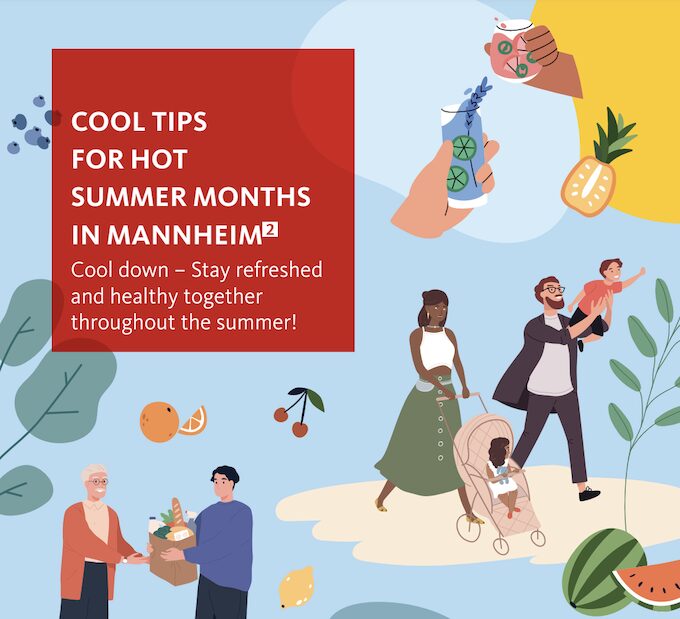Every year in October, the Franco-German conference of green mayors and local elected representatives takes place in Strasbourg, organised by the Heinrich Böll Foundation.
The aim is to offer local elected representatives from France and Germany a space for workshops, informal exchanges and excursions to discuss the challenges and opportunities of local ecological policy.
Christa Möller-Metzger, spokesperson for senior citizens’ policy in the Hamburg Parliament and boardmember of European Green Seniors was also invited to speak at the event.
Christa talked about how cities and municipalities can prepare for the more frequent heatwaves of the future in order to protect vulnerable groups:
There were more than 60,000 heat-related deaths in Europe in the summer of 2022, with Germany in third place with more than 8,000 deaths and France in fourth place. City dwellers in particular find it difficult to escape the heat. Lots of concrete, too few plants that evaporate cooling moisture and surfaces that store heat turn cities into heat islands.
When it’s hot, it’s mainly people who don’t attract much attention anyway who die: They are often old, live alone, have few contacts and not much money – poverty in old age is a growing problem.
Older women are particularly affected! Accordingly, almost 60 per cent more women than men died from the heat in 2022.
Unfortunately, there is generally little awareness of the problem. Many older people say: Yes, yes, we know that, we’re familiar with it, that’s why we already had heat holidays at school, it’s nothing new for us.
We therefore urgently need more education, we need to target parents, pregnant women, the sick, the homeless and especially older people.
In Hamburg, we have already made a start on the hamburg.de website and are providing information about extreme weather with the ‘Wetterwach’ campaign. We give tips on how to deal with heat and provide information about cool places in the city. This information is also important for home and inpatient care.
Around 150 different stakeholders from various areas of society are currently working on a targeted heat action plan under the leadership of the health authority, which should be available this year and for which 100,000 euros each have already been earmarked for 2025 and 2026.
Other cities such as Mannheim, for example, already have such a plan (in 7 languages). We need immediate measures and also longer-term measures that affect urban planning.
For example:
-Older people should network better. We can do something about isolation and loneliness by organising senior citizens’ meetings, chat groups and residential communities for the elderly.
-We must become a caring community. Take care of each other. Don’t always wait to see what the city or community does for us, but develop more self-efficacy again.
-Doctors should think about heatwaves when prescribing medication; dehydration tablets also cause dehydration.
-Rely on AAL systems, so-called active assistant living systems, digital assistance systems that, for example, recognise when someone falls and does not move and then call pre-arranged telephone numbers.
-We need old trees that provide shade, preferably everywhere in the city. As a rule, a tree must be at least 60 years old.
-Greenery lowers the temperature, which is why parklets and micro-forests, also known as tiny forests, are important.
Only a green city or municipality is an age-friendly place.







